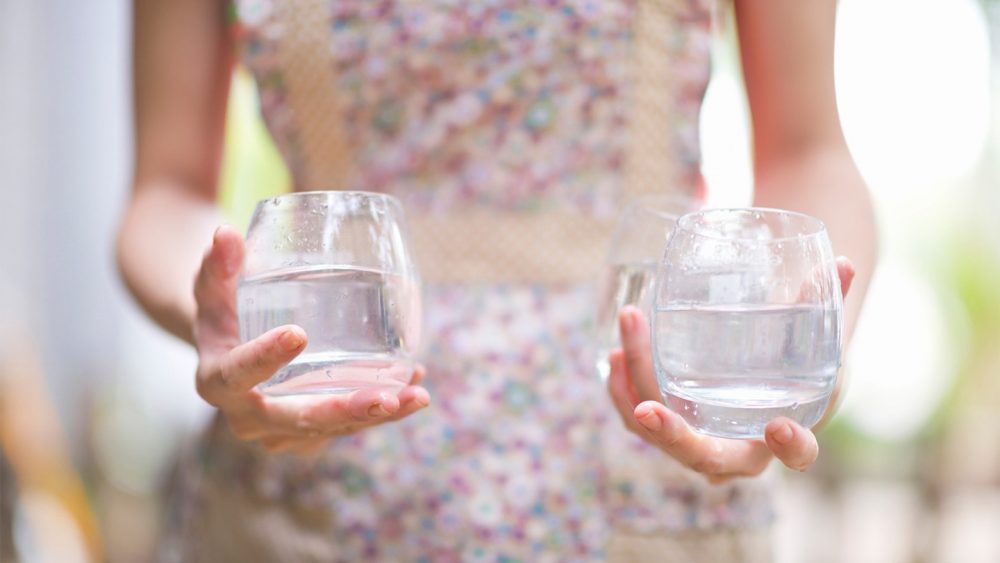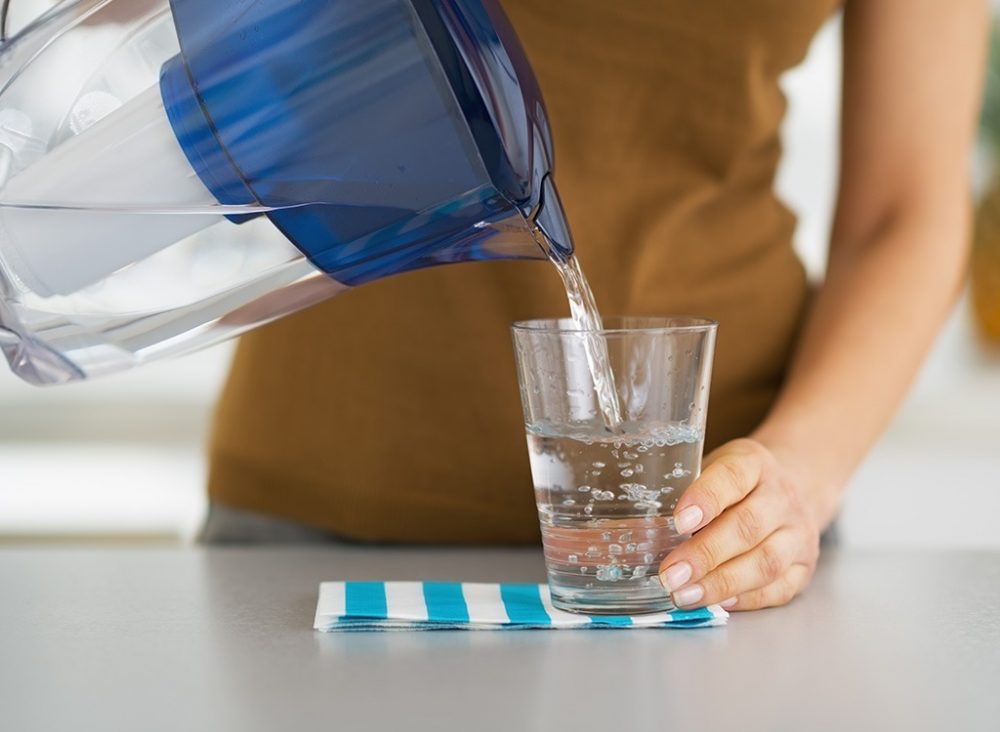
Water Intake of an individual varries depending on the climate you live in and the type of lifestyle you lead. Some kids/women may need more or less, depending on their overall health, including if they have certain illnesses, take specific medications and more. It also depends on how much they exercise and the level of intensity, and the cimatic conditions. Water comprises from 75% body weight in infants to 55% in elderly and is essential for cellular homeostasis and life.
Some ailments that require more fluid intake, are bladder disorders or kidney stones. Other conditions of the heart, kidney, liver and adrenal system may upset excretion of water and require that you control your fluid consumption. Those who train daily or take part in any strenuous activity, it is necessary to drink more water to replenish for the fluid loss. An added 400 to 600 milliliters (more than 2 glasses) of water should be sufficient for short periods of exercise, but intensive exercise that lasts over an hour requires additional fluid intake.
Women should drink 2.2 liters (about 10 glasses) a day. Pregnant or breastfeeding Women who are pregnant or breast-feeding need more water to stay well hydrated. Large amounts of fluid are required to make breastmilk. The Institute of Medicine suggests that expecting mothers drink 2.5 liters (about 10 cups) of fluids every day and women who breastfeed drink 3.2 liters (about 13 cups) of fluids daily. Babies and infants need 0.7 to 0.8 liters of water daily from breast milk or formula.
Talkings of children or teen, they should drink at least six to eight cups of water a day and eat the recommended number of servings of fruits and vegetables every day.
Kids Total Daily Beverage and Drinking Water Requirements
| Age Range | Gender | Total Water (Cups/Day) | ||
| 4 to 8 years | Girls and Boys | 5 | ||
| 9 to 13 years | Girls | 7 | ||
| Boys | 8 | |||
| 14 to 18 years | Girls | 8 | ||
| Boys | 11 |
Data are from Institute of Medicine of the National Academies. Dietary Reference Intakes (DRIs) Tables. Recommended Daily Allowance and Adequate Intake Values: Total Water and Macronutrients.
Reviewed April 2017Mary Mullen, MS, RD, is co-author of Healthy Eating, Healthy Weight for Kids and Teens from the Academy of Nutrition and Dietetics. Jodie (Jo Ellen) Shield, MED, RD, LD, is co-author of Healthy Eating, Healthy Weight for Kids and Teens from the Academy of Nutrition and Dietetics.
Effect of Aging on Fluid Intake
Studies support small changes in the regulation of thirst and fluid intake with aging. Defects in both osmoreceptors and baroreceptors appear to exist as well as changes in the central regulatory mechanisms mediated by opioid receptors. Because of their low water reserves, it may be prudent for the elderly to learn to drink regularly when not thirsty and to moderately increase their salt intake when they sweat. Better education on these principles may help prevent sudden hypotension and stroke or abnormal fatigue can lead to a vicious circle and eventually hospitalization.
Signs of Inadequate Water Intake
- Your Mouth is Dry
- Dry Skin
- You’re Overly Thirsty
- Dry Eyes
- Joint Pain
- Fall in Muscle Mass
- You Stay Sick Longer
- You Feel Fatigued and Lethargic
- Digestive issues
- Constipation
- Reduced Urination
- Premature Aging
Always have a glass or bottle of water next to you, whether you are working, working out, or vegging out in front of the TV.
Ref:
